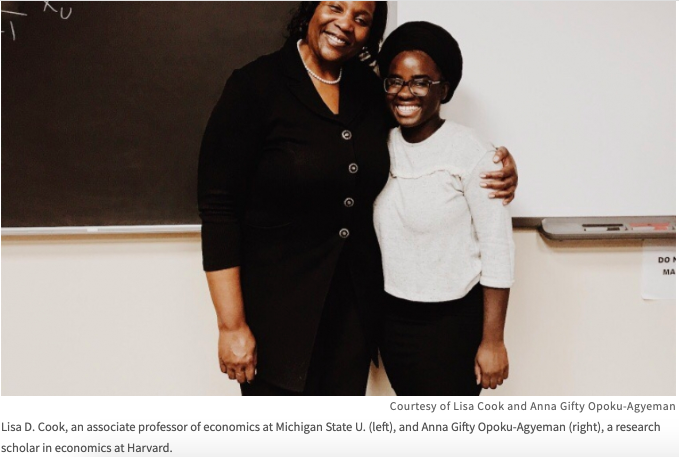 A few weeks ago, in the Chronicle: “‘It Was a Mistake for Me to Choose This Field’: A Survey Lays Bare the Experiences of Black Women in Economics”
A few weeks ago, in the Chronicle: “‘It Was a Mistake for Me to Choose This Field’: A Survey Lays Bare the Experiences of Black Women in Economics”
A brief and heart-breaking excerpt:
According to the results of a climate survey that leaders of the American Economic Association called the first of its kind for the organization, which were released in September, 62 percent of black women reported experiencing racial or gender discrimination, or both. That was the highest percentage of any racial group. “I would not recommend my own (black) children to go into this field,” wrote one respondent. “It was a mistake for me to choose this field. Had I known that it would be so toxic, I would not have.”
Image: https://www.chronicle.com/article/It-Was-a-Mistake-for-Me-to/247446?utm_source=at&utm_medium=en&cid=at&source=ams&sourceId=4094068
 Last week the Chronicle‘s teaching newsletter reported, again, about SETs:
Last week the Chronicle‘s teaching newsletter reported, again, about SETs:  Pamela Newkirk, in
Pamela Newkirk, in 
 Hope to see you at Mudd Atrium between 5:30-7pm.
Hope to see you at Mudd Atrium between 5:30-7pm.